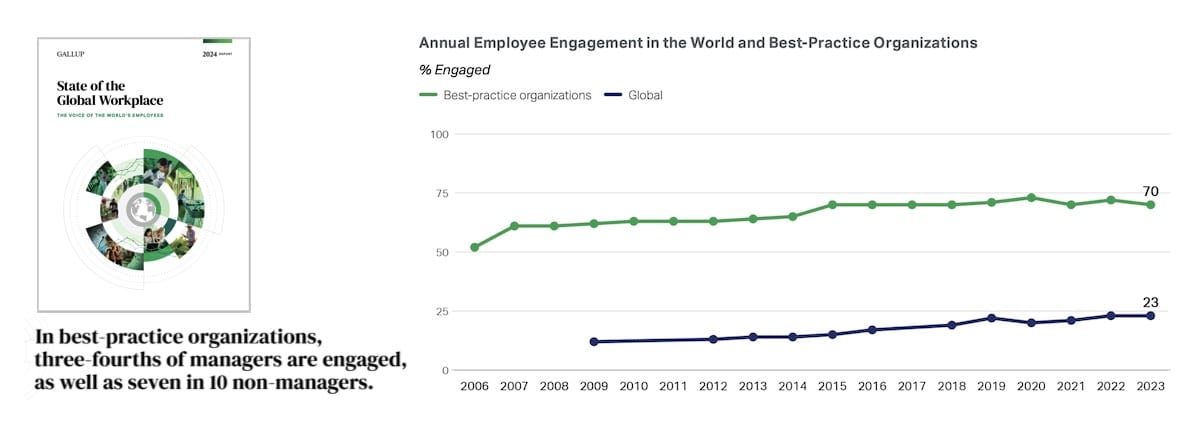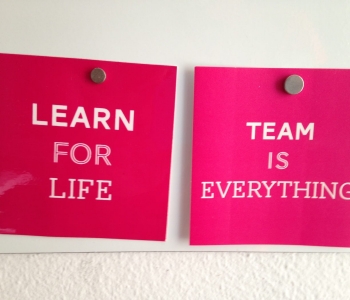Creating a Mentally Healthy Workplace With the Support of Team Leaders
What is an organization’s greatest hope in supporting the mental wellness of its workforce?
Team leaders or managers!
When creating a mentally healthy workplace, every organization wins by elevating mental health awareness through people in different leadership positions.
When mental wellness is approached proactively and based on learning intrapersonal skills, it transforms how work is approached.
Fit minds work well and are engaged in what they do.
The team leader is the key figure who can notice when people need to boost their mental wellness and influence this transformation to a more stress-free work approach. Integrating mental wellness into one’s work and leadership style allows you to get more done.
From low engagement rates to disheartening outcomes and increasing instances of employee mental distress, companies are grappling with finding effective mental health solutions. Until this approach remains reactive, problems keep appearing and re-appearing.

Positive mental wellness approach
Start a proactive mental wellness movement. Communicate to your managers: Whether or not mental wellness is part of the job description, you are uniquely positioned within the organization to initiate a middle-out movement of mental wellness.
The human mind is made up of many different qualities and tendencies. It includes likes and dislikes, optimism and pessimism, love and hatred, kindness and cruelty, and both constructive and destructive thoughts.
All these qualities blend together in each person, but some qualities are stronger in some minds than in others. What qualities dominate in your mind are largely influenced by your environment, the people you associate with, and the quality of your intrapersonal skills.
Any thought that you hold onto or think about a lot tends to attract similar qualities in your mind. If you show what a person thinks about the most, you can tell how they are likely to& act. You can't constantly think about misery, suffering, problems, and disease and expect to be happy, healthy, and prosperous. These things just don't go together.
It is also equally important how people feel.
Feeling stressed and under pressure leads to stress and burnout. Feeling worried and anxious leads to anxiety. Not overnight but over months and years.
However, covering negative thoughts with positive ones and negative emotions with positive ones isn't an efficient solution. It just creates inner battles.
We all need to understand our inner processes and learn to lead them at will. This is why prioritizing mental wellbeing and using intrapersonal skills in your leadership approach can create a ripple effect that fosters a supportive and mentally healthy workplace for everyone.
When people know how to deal with the negative in their inner domain and release negative emotions and give up negative thinking, they can lay the foundation for sustainable positive outcomes.
A positive thought is like a seed planted in the ground in that it brings back a crop; therefore, holding positive visions and thoughts matters. Leaders are the ones who understand the company narrative and are responsible for sharing it with their teams.
Self-leadership is a great example of ensuring mental wellness
However, the role of managers extends beyond just guiding their teams; it includes self-leadership as well.
A manager who practices self-leadership is better equipped to support their team’s mental wellness.
Self-leadership involves self-awareness, self-regulation, and self-motivation. By understanding their own mental health needs and actively managing their stress and well-being, managers set a powerful example for their teams. This practice of self-care and active use or awareness or (passive use of awareness, what we know as) mindfulness encourages a culture where mental wellness is normalized and prioritized.
Ensuring mental wellness demands getting managers or leaders to keep their own minds fit and well first.
Encourage team leaders and your staff members to:
- Cultivate Self-Awareness: Allow them to self-evaluate their mental wellness status (included in Wellenss Orbit e-trainings) and recognize signs of stress or early warning signs of burnout. This awareness helps them understand their limits and change their behavior when risks become apparent. Knowing how to spot excess stress and warning signs of burnout makes a great difference and allows you to prevent depression and other work-related mental health issues.
- Practice Self-Regulation: Implement techniques to manage stress, such as learning intrapersonal skills, keeping healthy eating and sleep patterns and securing regular physical activity. A manager who remains in inner harmony is better positioned to support their team.
- Maintain Self-Motivation: Use workbooks and different tools to secure mental wellness and pursue activities that promote a healthy mindset. Engaging in continuous learning or creative endeavors can enhance overall well-being.
- Learn from failures. Every reverse and every setback or miscommunication can be turned into a building stone for a solid foundation of success. Failures teach you to become more tolerant and adaptable. Failures also teach you to become more persistent. There is a lesson in every failure, as it is a tempering process through which you learn to accept your responsibilities. If you can survive initial failures, you will rise to the heights in your chosen life work.
- Train your mind and share your intrapersonal skills. Only an untrained mind becomes easily unbalanced and worried. A trained mind can face challenges and deal with stresses and worries. You can teach only what you fully understand. As you learn more about the possibilities of the human mind you will see that latent within your mind are all the possibilities which you can find in other minds. Our human minds possess all the inner power we need to master this life, but here, intrapersonal education matters as it opens up our dormant potential.
By incorporating self-leadership into their routine, leaders can model healthy behaviors and demonstrate the importance of mental wellness. This, in turn, empowers their teams to follow suit, creating an environment where mental health is openly discussed and valued.
In essence, supporting mental wellness in the workplace starts with the team leaders and managers but extends through their example of self-leadership. Everyone needs to keep their mind fit and well.
The most efficient approach in this case is to take regular mental wellness training. Organizations must invest in training and resources that equip managers not only to lead their teams but also to lead themselves. This dual approach ensures a comprehensive strategy for mental wellness that benefits the entire workforce.
|
Napoleon Hill once wrote, "The human mind is the only great mystery in the world which should interest human beings, because the human mind, when properly directed, can transform the most common sort of person into a genius!" This is wise to remember.
What you can and can't do is up to the minds of your people. That is why investing in mind health matters. And besides, it makes an excellent business case, offering up to tenfold ROI! So, don't wait, invest in proactive mental wellness training today!
Napoleon Hill also stated "You wish to succeed. It can do you no harm to know that your success must come through the aid of your own mind; especially the imaginative section of your mind wherein you build definite plans for the guidance of your physical activities."
So, be wise and use your mind well, regardless of your title and position. Be bold and ask your leaders to give you access to proper mind health training.
Conclusion
The only efficient and sustainable method of controlling and leading the different processes within the human mind is that which is self-imposed, through the aid of intrapersonal education.
Educate your staff, let them know the whys behind your work and work routines, and people will know why it pays to remain honest and hard working for your cause. No work is just fun.
All work sooner or later includes challenges, training the minds of your leaders and staff allows them to be prepared and seek productive and healthy win-win solutions for the employees and the organization.

This blog post is written and photos taken by Kaur Lass





